Apr 2, 2024 12:59 PM
Saxophonist, Sonic Explorer Casey Benjamin Dies at 45
Casey Benjamin, the alto saxophonist, vocalist, keyboardist and producer who stamped his distinctive sounds on the…

Joel Ross and Good Vibes celebrate the vinyl release of Kingmaker on Friday, Aug. 2 at the Newport Jazz Festival in Newport, Rhode Island. Ross—who also played with Makaya McCraven and with the collective In Common—performed three sets in two days during the festival.
(Photo: Courtesy Blue Note Records)By the time Paul Gonsalves shook up Fort Adams with 27 blistering choruses in 1956, the Newport Jazz Festival already had become a high-profile platform for expression and exchange. One weekend each year, its fabled grounds beckon artists to trace paths of those who came before them—many who serve as signposts for innovation and defiance.
For its 65th anniversary, the Rhode Island festival welcomed 39 first-time leaders out of 55 performers. Debuts included sets from Buika, Thundercat, Billy Hart, Kandace Springs, PJ Morton, ELEW, Ghost Note, and Camila Meza And The Nectar Orchestra, among others.
First-timer sets hit early and lasted into the evening as the weekend’s attendance peaked Saturday at 9,145, just short of the venue’s 10,000-person capacity. At the Harbor stage that day, vibraphonist-composer Joel Ross received a brief but effusive introduction from WBGO’s Nate Chinen, who described Ross’ working band, Good Vibes, as “an incredible unit.” The set that followed featured selections from KingMaker, Ross’ Blue Note debut, which was marking its vinyl release.
Midway through his first solo, Ross collected one of many outbursts of applause from focused festivalgoers. Intense listening at times gave way to executive responses from the bandleader, who at one point directed the engineer to bring up some levels in the monitor. Throughout the set, Ross’ T-shirt spoke to the audience with a frank message, “Legends Don’t Die,” and depicted recently departed drummer and friend Lawrence Leathers.
As Good Vibes reverberated into the afternoon, another first-timer was priming her band. Dee Dee Bridgewater took the Fort stage as the Memphis Soulphony flexed on its arrangement of the Bar-Kays’ 1967 single “Soul Finger,” but only after an introduction from festival artistic director Christian McBride, who expressed disbelief at the NEA Jazz Master’s debut at Newport coming in 2019. Bridgewater spoke directly to the audience throughout her set, often engaging fans individually. Among memorable moments, her interplay with guitar on Al Green’s “Can’t Get Next to You” elicited an eruptive response from a sprawling sun-drunk audience, as did her delivery of the Staple Singers’ “Why Am I Treated So Badly,” a Memphis standard Bridgewater described as being anthemic during the civil rights movement.
Across grounds, Makaya McCraven waited behind the Quad stage for his premiere performance. The pan-talented Chicago-based artist soon arranged himself behind his drum setup and turned toward the mic. He welcomed friends and family, acknowledging that his 10-year wedding anniversary coincided with his Newport debut.
An artist who values the freedom to recontextualize existing ideas and musical expressions, McCraven embraces structure and spontaneity, gravitating toward like-minded collaborators. The set opened with “Young Genius,” a tune he wrote for vibraphonist Ross, who took the first solo during the second of three sets he’d play at the festival. Throughout the performance, ensemble members received standing ovations, including during the bandleader’s “She Knew” and “The Bounce!”
McCraven views leading his own project at Newport, in part, as an opportunity to engage with the music’s tradition—and everything that comes with it.
“There have been performances at this festival that have been very defining for jazz and movements of jazz,” McCraven said before the hit. “When they open [their] doors to younger artists who might be challenging certain parts of the status quo, I think that’s important in developing the music.”
As with any tradition, disruption is part of the gig.
“Things that operate with depth are things we’re going to debate about—things that are going to have some kind of conflict between holding on to tradition and evolving it,” the percussionist said. “So, in that sense, as a young musician who’s trying to be a provocateur, I do feel that’s inherently taking part in tradition.”
McCraven wasn’t the only artist ruminating on lineage that day. Singer-composer Laurin Talese opened her well-attended, albeit sweltering, indoor debut at the Storyville stage with Antônio Carlos Jobim’s “Meditation,” taking two choruses up front, before passing the mic to pianist Shedrick Mitchell. “I couldn’t be more thrilled,” Talese said.
“I stand on the shoulders of Sarah Vaughan, one of the most mellifluous and virtuosic jazz vocalists, and Nancy Wilson, our dearly departed ‘song stylist’ who flourished in jazz, but was not wed to any genre,” the vocalist continued. “She only needed a song with good bones and a story to bring to life. I hope to make them both proud.”
Though pivotal, their Newport performances won’t define these artists’ individual sounds the way their unique experiences will. As they make—and continue to leave—their mark on the music, each might return to Fort Adams or simply find new venues for exploration.
“I think [questions] that exist in these blurry gray lines are the deepest questions,” said McCraven, glancing down at his cymbal bag. “And we can thank jazz for that.” DB
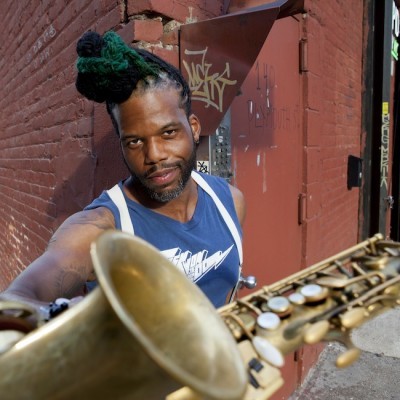
Benjamin possessed a fluid, round sound on the alto saxophone, and he was often most recognizable by the layers of electronic effects that he put onto the instrument.
Apr 2, 2024 12:59 PM
Casey Benjamin, the alto saxophonist, vocalist, keyboardist and producer who stamped his distinctive sounds on the…
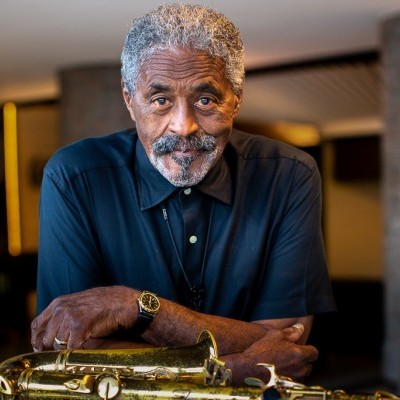
“He’s constructing intelligent musical sentences that connect seamlessly, which is the most important part of linear playing,” Charles McPherson said of alto saxophonist Sonny Red.
Feb 27, 2024 1:40 PM
“I might not have felt this way 30 to 40 years ago, but I’ve reached a point where I can hear value in what people…
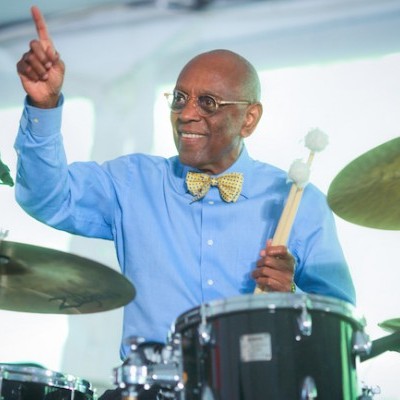
Albert “Tootie” Heath (1935–2024) followed in the tradition of drummer Kenny Clarke, his idol.
Apr 5, 2024 10:28 AM
Albert “Tootie” Heath, a drummer of impeccable taste and time who was the youngest of three jazz-legend brothers…
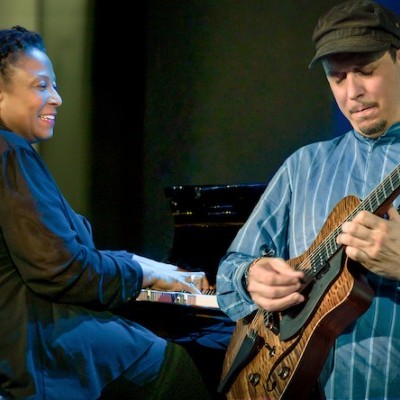
“Both of us are quite grounded in the craft, the tradition and the harmonic sense,” Rosenwinkel said of his experience playing with Allen. “Yet I felt we shared something mystical as well.”
Mar 12, 2024 11:42 AM
“There are a few musicians you hear where, as somebody once said, the molecules in the room change. Geri was one of…
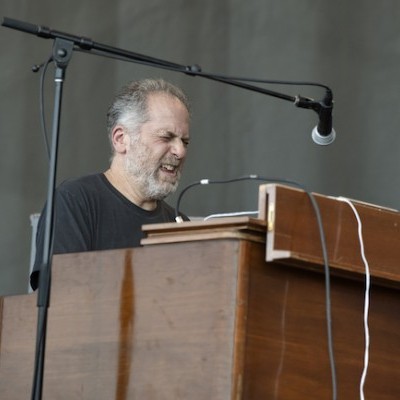
Larry Goldings’ versatility keeps him in high demand as a leader, collaborator and sideman.
Feb 21, 2024 10:45 AM
Are you having any fun? Larry Goldings certainly is. Consider just two recent examples:
Scene 1: “If anyone had…